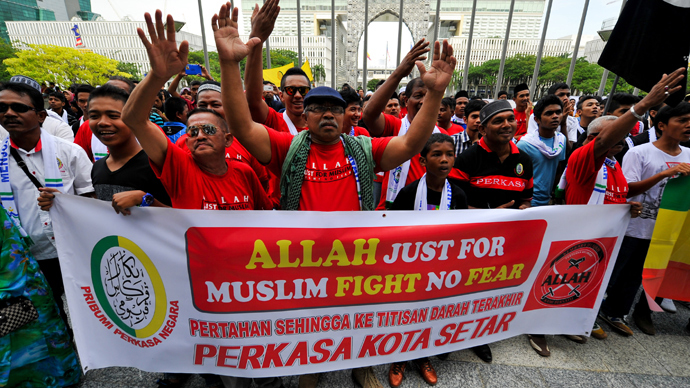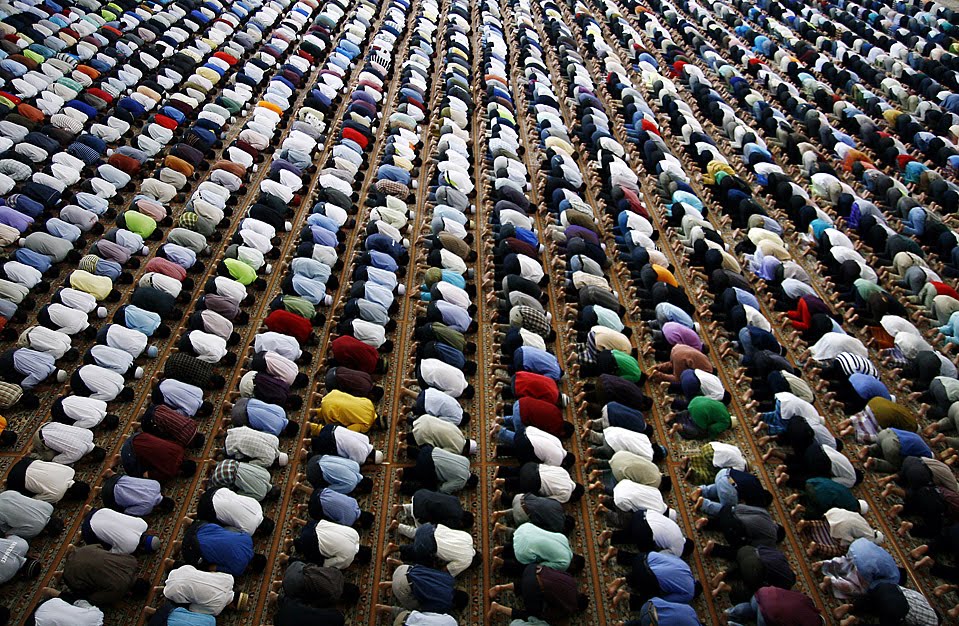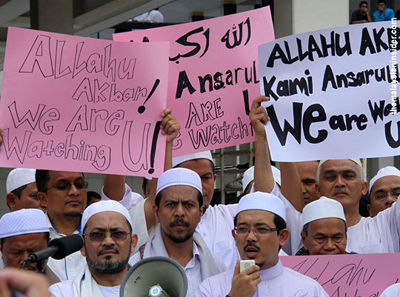Now It Is NYT's Turn To Scrutinise Malaysia's Most Emotionally Charged Issue
There is no dispute more fundamental and emotionally charged than who owns this five-letter world.
After the Wall Street Journal's analysis on how certain Muslim groups here are using Islam to hold on to the reins of power, The New York Times took its turn to scrutinize the racial politics of Malaysia
There is no dispute more fundamental and more emotionally charged than who owns the word God, NYT says about the "Allah" ban
Malaysia, with its collage of ethnic groups and religions, has a long history of tensions over issues ranging from dietary differences to the economic preferences enshrined in Malaysian law for the Malay Muslim majority. But there is probably no dispute more fundamental and more emotionally charged than who owns the word God.
For Malaysia’s religious minorities, the government’s ban on non-Muslims using the word Allah, and the repeated seizures by government officials of Malay-language Bibles, is enough to make a smiling and cheery kindergarten teacher snap in anger. “Honestly I think it’s nonsense,” said Belinda Buntot, the teacher in the kindergarten here on the northern tip of the island of Borneo. “Of course we use Allah. We can’t teach the kids without it.”
Malaysia's Department of Islamic Development does not see the word "Allah" as a generic name for God, but as the religion of the person who uses it
The government’s National Council for Islamic Religious Affairs deliberated on the issue of whether non-Muslims have the right to use the word Allah and issued a fatwa. “The conference decided that the word Allah is a sacred word specific only to the religion and followers of Islam and it cannot be used or made to be similar with religions other than Islam,” said the fatwa, which was posted on the government’s “e-fatwa” website.
The Department of Islamic Development argues that Allah is not a generic name for God but signifies “the religion of the person who uses it.” “That is the reason why the usage needs to be monitored and preserved by the government in order to ensure that no one will be confused with the most exalted name,” the department says on its website.
The department see the need to closely "monitor and preserve" the usage of the word, thus explaining the multiple cases of Malay-language Bibles prohibited and confiscated
Islamic authorities have warned that Malay-language Bibles could be used for proselytizing Muslims, which is illegal in Malaysia.
The government first prohibited the printing, publication and sale of Malay-language Bibles in 1981 as it was considered “prejudicial to the national interest and security” of the country
When the government first prohibited the “printing, publication, sale, issue, circulation or possession” of Malay-language Bibles in 1981, it said the books were “prejudicial to the national interest and security” of the country.
To the outside world, the Malaysian government puts on an image of a modern, moderate and harmonious Islamic state
Islam is the official religion of Malaysia, and Muslims are governed by Shariah, though Christians, Hindus and Buddhists make up sizable minorities. Outside the country, the government has sought to cultivate an image of a modern, moderate Islamic state, where 60 percent of the population is Muslim, and minorities live harmoniously.
But Christians, who make up 10 percent of the population, say the Allah ban is one of many signs that a conservative Islamic movement is steering an increasingly intolerant government policy.
But at home, moderate groups are alarmed at the signs of a conservative Islamic movement with increasingly intolerant government policies creeping in
Perhaps more than at any time in recent decades, Malaysia’s moderate voices are sounding an alarm. Zainah Anwar, the founder of Sisters in Islam, a women’s rights group, describes a “headlong descent into a puritanical, extremist, intolerant brand of Islam in this country.” “Malaysia’s moderate Islam is only touted for Western consumption,” she wrote in The Star newspaper on Sunday.
Ms. Zainah also wrote, “For too long this government has given almost a carte blanche to the religious authorities and the belligerent supremacists to take the lead and define what Islam is and is not.”
According to Islamic scholars, banning non-Muslims from using "Allah" is unique to Malaysia. The largest Islamic organization in Indonesia, Nahdlatul Ulama says "Allah" is not a word only for Muslims.
Islamic scholars say banning non-Muslims from using “Allah” is unique to Malaysia.
“You can’t find this idea in any previous Islamic discourse,” said Yahya Cholil Staquf, a senior cleric at Nahdlatul Ulama, the largest Islamic organization in Indonesia, Malaysia’s neighbor and the world’s most populous Muslim-majority country. “Every language has its own word for God. Allah is just a word to acknowledge God. It’s not a word for only Muslims.”
The Christian minority in Indonesia, where the lingua franca is similar to Malaysia’s, refers to God as Allah without any controversy; Indonesian Bibles are often imported into Malaysia, when they are not seized by the authorities.
Minorities in Malaysia need clarity on freedom of religion in the country
Minorities need clarity on freedom of religion in the country, said the Rev. Jerry Dusing, the church president of a large evangelical Christian denomination, Sidang Injil Borneo. “No law can prohibit anyone from the reasonable practice of their faith,” he said in an interview. “Why on earth are they banning words?”
The Roman Catholic Church has also been embroiled in a court case challenging Malaysia’s Allah ban after the government ordered that its newsletter, The Herald, stop using Allah.
Just this morning, a group of Muslim NGOs protested against the development of a four-storey church in Bandar Sunway. They deemed the building insenstive to the predominantly Muslim community in the area.
Wan Saiful Wan Jan from the Institute for Democracy and Economic Affairs explains that politicians from the ruling coalition play up perceived threats to Islam to maintain political hegemony
In Malaysia’s ethnic-based politics, it is in the interest of politicians from the governing coalition to play up perceived threats to Islam, says Wan Saiful Wan Jan, the executive director of the Institute for Democracy and Economic Affairs, a research organization in Kuala Lumpur that promotes liberal democracy and free markets.
“The more Muslims feel they are under threat, the more UMNO can maintain its political hegemony,” Mr. Wan Saiful said.
He says Malaysia conservative Muslims are disconnected from the wider Islamic world. Even a Palestinian guy once told him "The world is laughing at you. I’m from an Arab country and everyone uses the word, every day."
Mr. Wan Saiful says Malaysia’s conservative Muslims are disconnected from the wider Islamic world. Arabic-language Bibles used by Christians in countries such as Egypt and Lebanon use the word Allah for God.
He was attending a conference overseas this year when the court affirmed the ban on the Catholic Church using Allah in its newsletter. “This Palestinian guy came up to me and said: ‘The world is laughing at you. I’m from an Arab country and everyone uses the word, every day.’ ”


